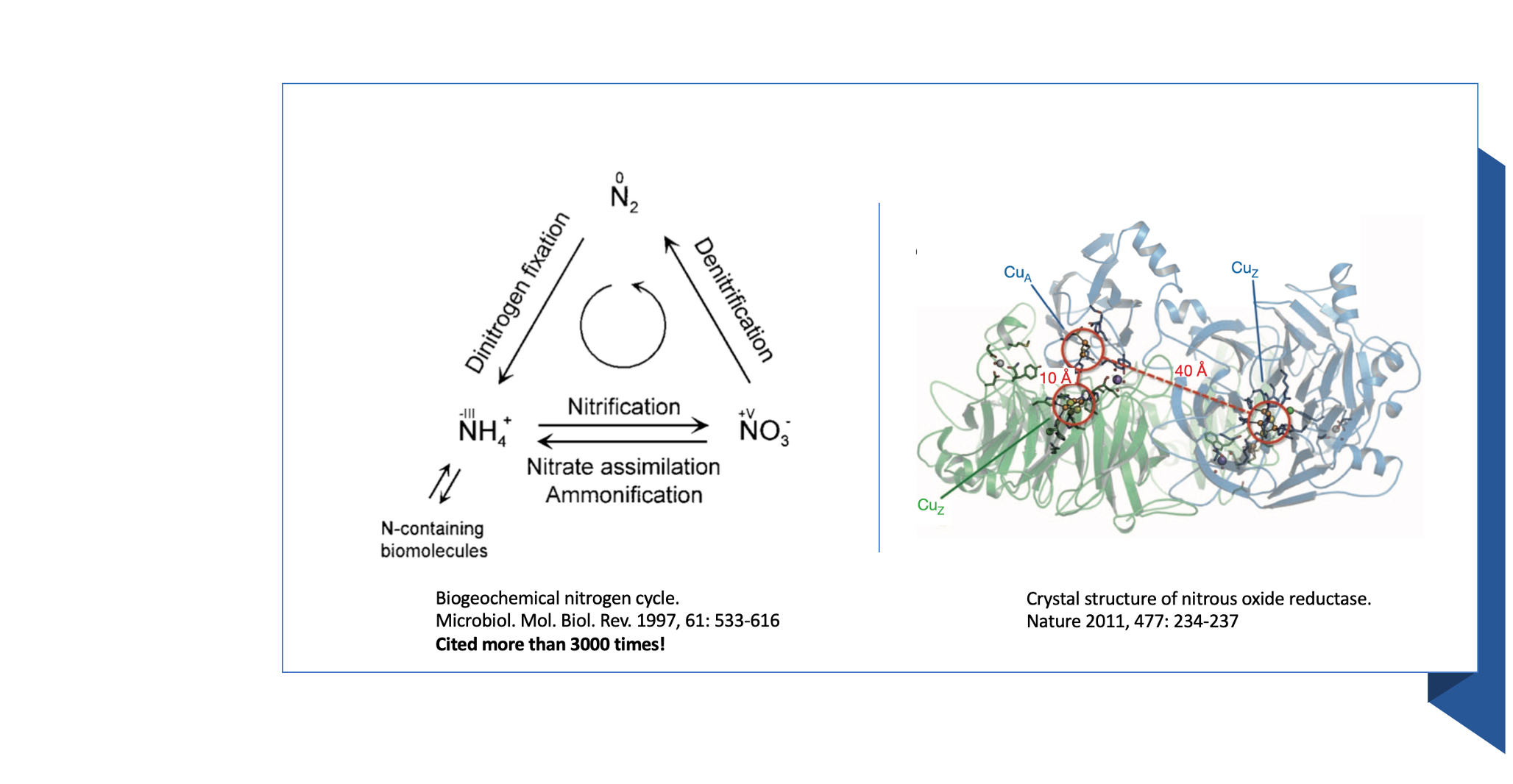Welcome to the Institute of Applied Biosciences (IAB)
The Institute of Applied Biosciences was founded in 2005 and consists of seven different departments. The research ranges from bacteria to fungi to food chemistry and toxicology and from basic to applied research.
Applied Biology
The Department of Applied Biology (Prof. Andreas Diepold) investigates the function and application of bacterial secretion systems. These machines allow bacteria to inject proteins and DNA into other cells. They are key virulence factors for important bacterial pathogens, but also used in symbiosis, for example in nitrogen fixation. We want to understand how these fascinating molecular machines work on the molecular level and use these insights to apply secretion systems in biotechnology and healthcare.
Further reading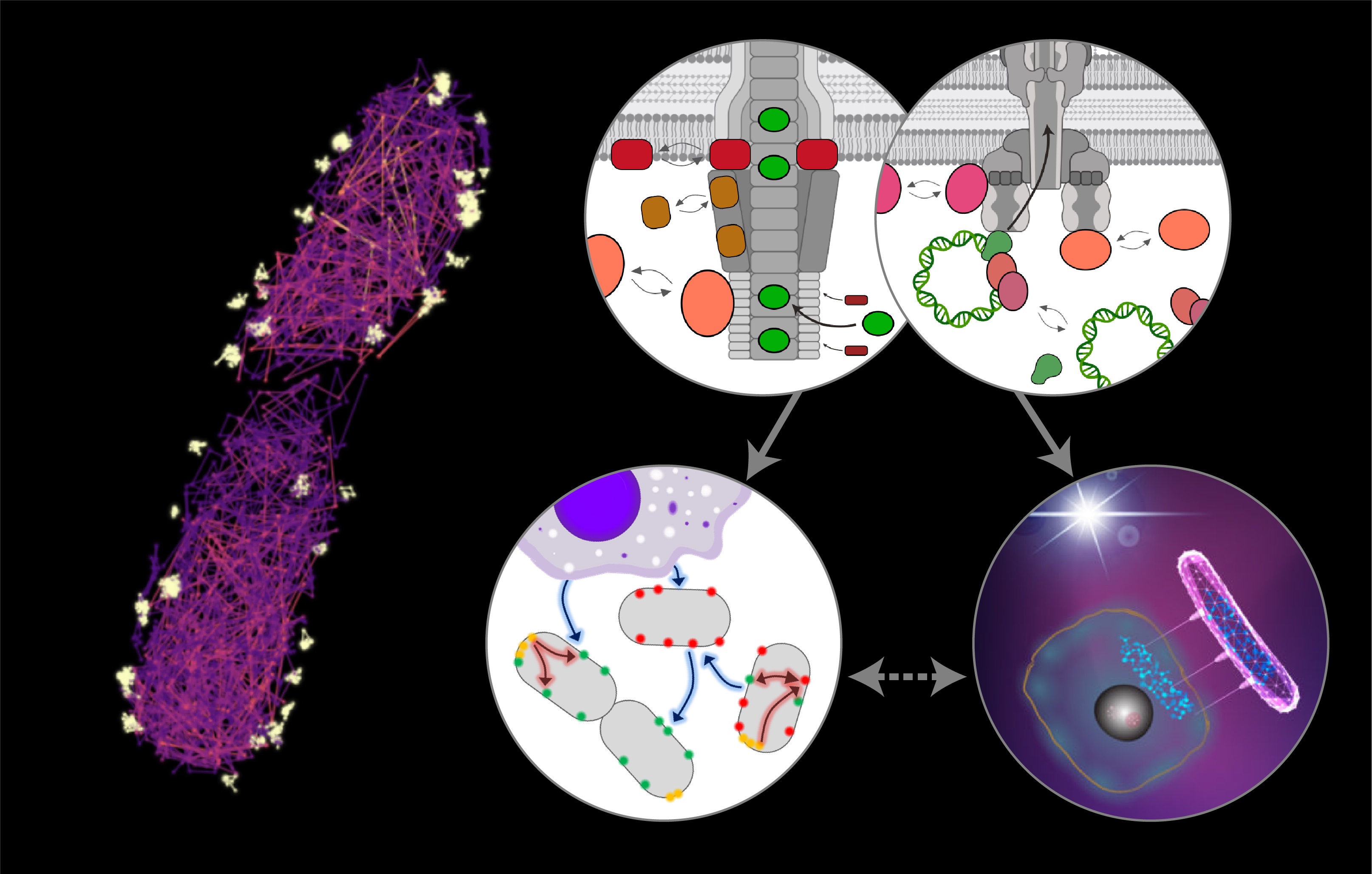
Bioactive and Functional Food Chemistry
The Department of Bioactive and Functional Food Chemistry (Prof. Katharina Scherf) studies the complex interplay between structure, functionality and bioactivity of food proteins in an interdisciplinary way. We use these fundamental insights to improve food security, food quality and food safety.
Further Reading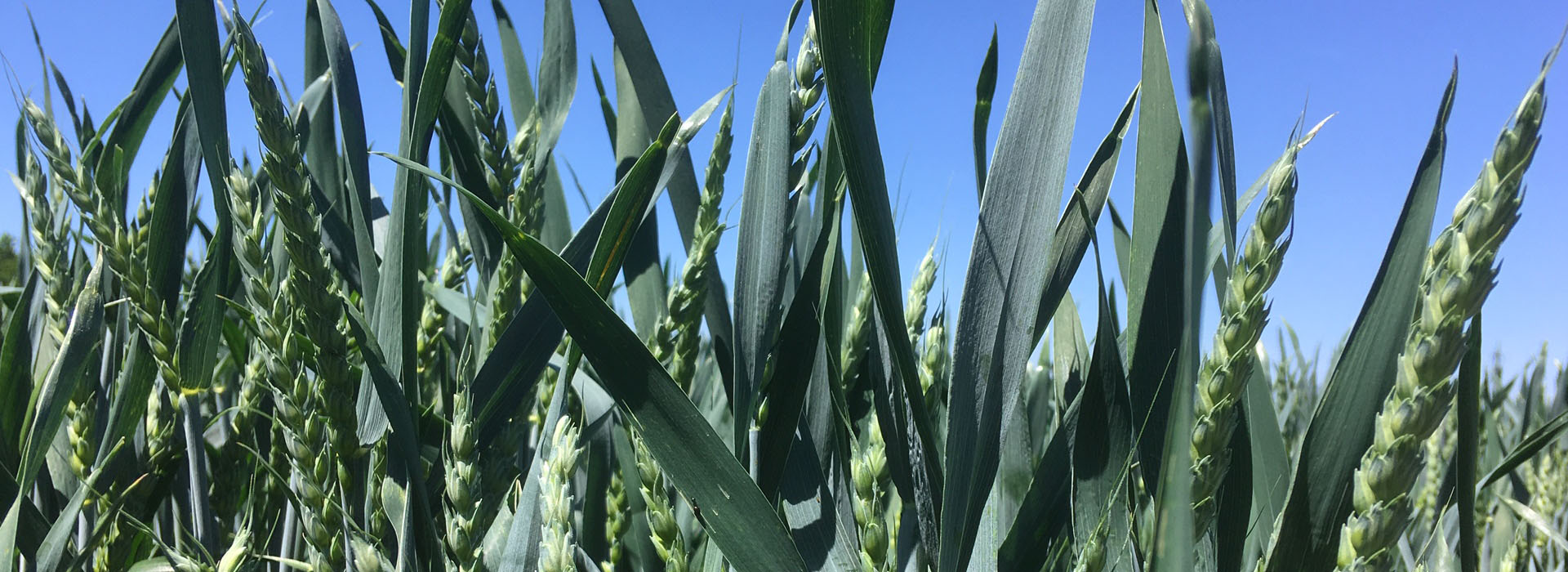
Biotechnology and Microbial Genetics
The aim of the department of Biotechnology and Microbial Genetics (Prof. Dr. Anne Kaster) is to obtain genomes from new bacterial and archaeal taxa with no sequenced representatives and providing direct link information between cell's phylogenetic and metabolic markers by matching phylogeny and function. We would like to unravel novel metabolisms, ecophysiology and mechanisms of energy conservation among uncultured microorganisms, which were intractable before. In addition, we are investigating minimal genome requirements and syntrophic interactions as well as probing genetic and phenotypic heterogeneity among cells, cell-to-cell variations, horizontal gene transfer and evolutionary pressure.
Further reading
Food Chemistry and Phytochemistry
The research of Prof. Dr. Mirko Bunzel is focused on plant cell wall, its consistuents and their functions in plant, in plant-based foods and in human nutrition.
Further Reading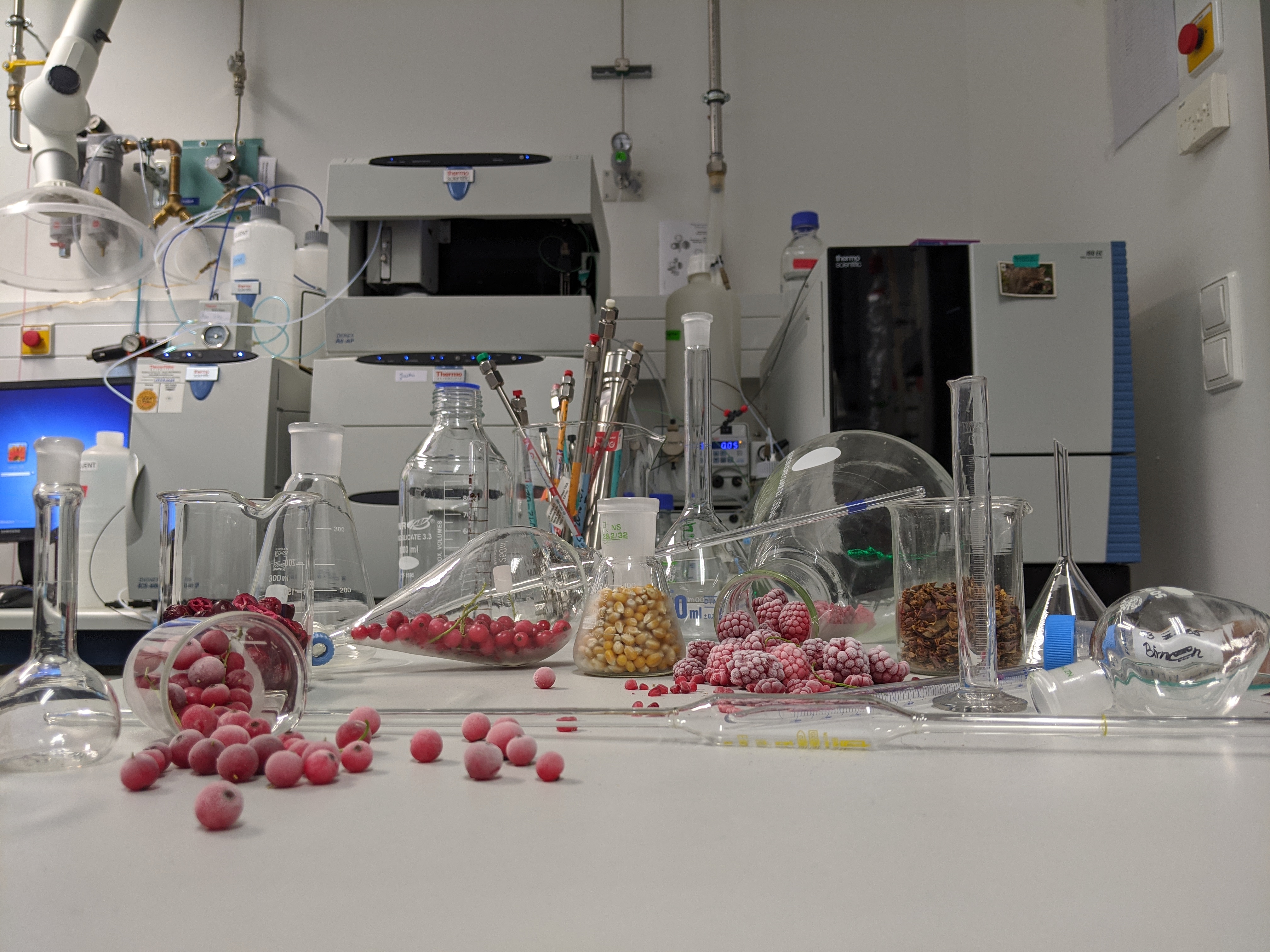
Food Chemistry and Toxicology
The research topics of the department of Food Chemistry and Toxicology (Prof. Dr. Andrea Hartwig) are centered around the impact of essential metal ions and toxic metal compounds, including metal-based nanomaterials, on genomic stability.
Further reading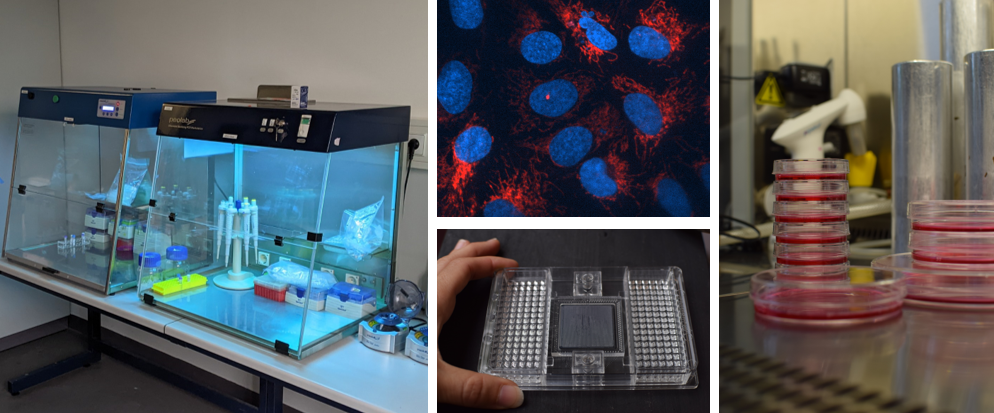
Genetics
The reseach in the department of Genetics (Prof. Dr. Jörg Kämper) is centered around the plant-pathogenic fungus Ustilago maydis.
Further Reading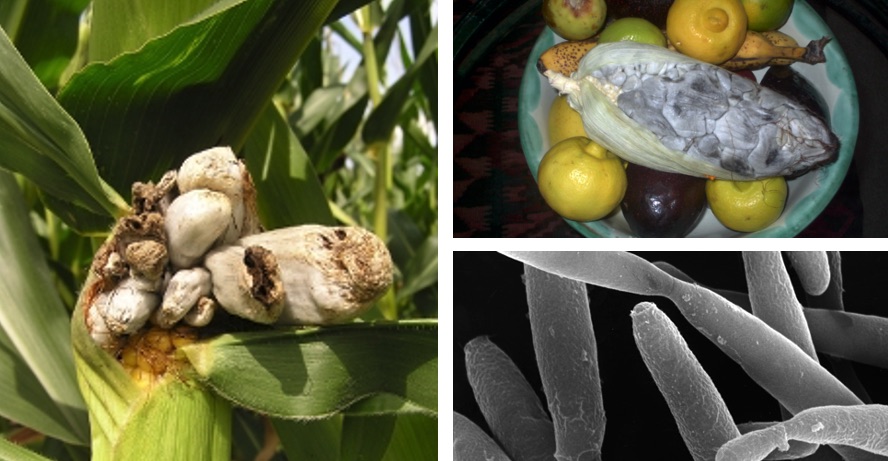
Microbiology
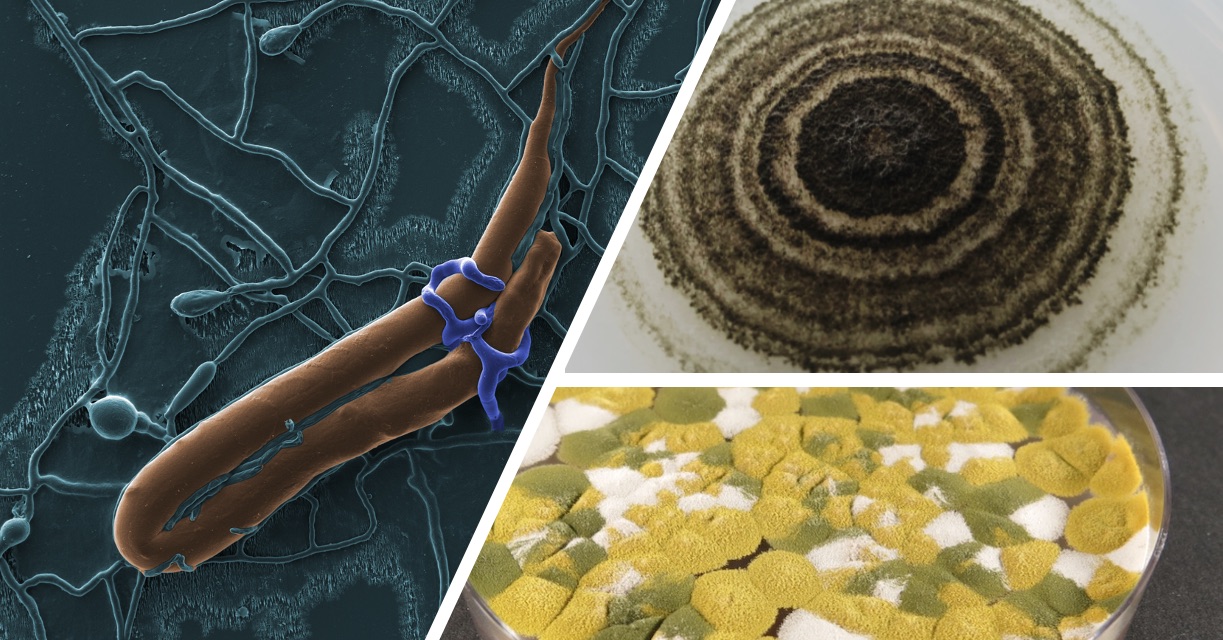
Microbiology 1982-2007
The research of Prof. Dr. Walter G. Zumft focused on the biochemistry and molecular biology of bacterial enzymes involved in the global nitrogen cycle.
Further Reading